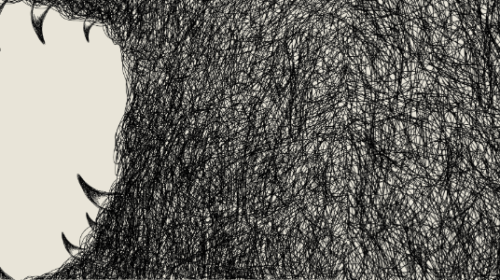From the era that brought you mom jeans and Dunkaroos, the ’90s proudly presents: medicating your problems away (and why we stopped doing that).
Like almost everything else in life, recovery is all about balance and the often-challenging pursuit of it. Addiction, extreme behavior, depression, anxiety, and all the other mental health challenges we face are, to a large extent, influenced by a lack of balance and control.
When these issues grow beyond our control, one of the most important places to start looking for this balance is in the treatment we seek. Treatment is never all or nothing, nor is it a one-size-fits-all situation. New data published in the American Journal of Psychiatry reinforces this reality with new insights on the importance of talk therapy in mental health treatment.
Researchers identified a marked uptick in the utilization of talk therapy and a corresponding decline in the use of psych medications. The percentage of American adults who receive psychotherapy increased from approximately 6.5% in 2018 to about 8.5% in 2021, representing an increase from about 16.5 million to nearly 22 million patients.
The shift represents a departure from decades-old patient preferences and habits, which started in the early 90s when talk therapy started to wane and medications became increasingly popular.
What’s Behind the Change?
Two key takeaways from the study are accessibility and awareness. Talk therapy has become easier to embrace, particularly with the emergence of telehealth and a wider range of insurance coverage options to make the process more affordable.
Additionally, people are more comfortable and familiar with talk therapy techniques and their benefits. There’s a greater understanding of what talk therapy is and what it’s not, as well as a healthy erosion of stigma that prevented many from seeking care in the past. The culture at large has become not only more accepting but also more encouraging of people exploring their challenges and traumas in therapy.
Perhaps most importantly, there’s a greater sense of realism regarding talk therapy’s limitations. People are no longer expecting an overnight cure, and they’re more willing to invest more time in the process without being discouraged and giving up too early.
Now Back to That “Balance” Thing
Ultimately, what these insights reveal is that there’s a place for psychiatric medication and talk therapy in mental health treatment, depending on the scope of a person’s challenges and their ongoing care needs. Medication is essential for people with diagnosed conditions that significantly impact brain chemistry, but people who don’t need drugs or can’t take them for whatever reason still deserve and need effective and supportive evidence-based mental health treatment resources.
In Case You Forgot: Just A Few Immediate and Long-Term Benefits of Talk Therapy
The “Word Purge”
What’s often affectionately referred to as “word vomit” is actually deeply cathartic and essential to people’s ability to articulate their feelings and thoughts without a filter. Talk therapy serves the millions of people in the United States and around the world who just need somebody to talk to and who understands (at least intellectually) what they’re going through. They often can’t talk to their friends or family about their issues because these relationships are, more often than not, at the very center of these challenges.
A Therapy For Everyone
As much as we’ve come to characterize talk therapy as a singular and one-dimensional practice, there are countless ways to deploy it, depending on the nature of patients’ challenges. Talk therapy can be packaged in religious or spiritual dialogue, family-centered therapy, sex or relationships, grief and loss, cognitive behavioral therapy, dialectical behavioral therapy, and more.
A Therapy for Everywhere
The rise of online treatment has made talk therapy accessible for everyone. This not only gives people access to more therapists who are better suited for their challenges, but it also helps people who face physical and logistical barriers to treatment more easily engage in therapy. Finally, it brings quality and supportive mental health treatment to people no matter where they are, which may be critically crucial to populations who can most benefit from treatment, such as military personnel stationed overseas or overwhelmed single parents who can’t leave their children to go to in-person appointments.
Come Talk to Recovery Unplugged
Recovery Unplugged’s behavioral telehealth programs offer a flexible and effective way to stay grounded in therapy. Clients receive 10 hours of treatment per week through a combination of group and individual sessions, along with direct access to a medical provider for medication management. By offering both a therapist and prescriber, we ensure your care plan is built to reflect the full scope of your challenges, not just one side. Whether you’re navigating mental health struggles, substance use, or both, our virtual programs are designed to meet you where you are.
When you’re ready to embrace talk therapy, Recovery Unplugged Behavioral Health is prepared to listen and help you wherever you are. Talk therapy is an integral part of our clinical offerings and is offered by our expert and compassionate team of therapists and counselors. Get the help you need for you or your loved one now.




















